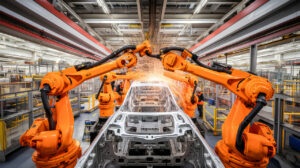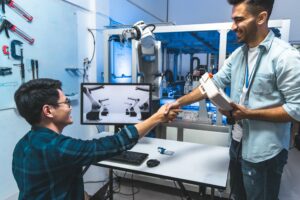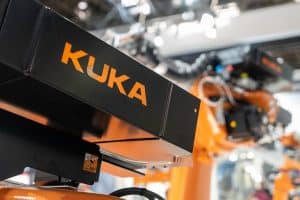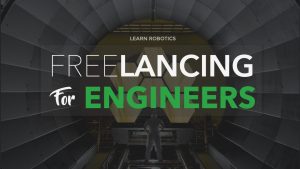Robots have long been a fascination in the realm of science fiction, but in recent years they have become an integral part of our everyday lives. From self-driving cars to automated manufacturing processes, robotics is transforming industries across the globe. In this article, we will explore the best robotics career opportunities for the 2020s and beyond.
With advancements in artificial intelligence and machine learning, robots are now capable of performing complex tasks with precision and efficiency. They can assist in healthcare by conducting surgeries, providing caregiving support to the elderly, and even delivering medication to patients. In warehouses and logistics centers, robots efficiently sort packages and handle inventory management, improving productivity and reducing errors.

Moreover, robotics is revolutionizing the agricultural sector by introducing autonomous drones for crop monitoring and robotic arms for harvesting. These innovations not only increase yields but also reduce labor costs.
As we enter the 2020s, the demand for skilled professionals in the field of industrial robotics is skyrocketing. If you’re looking for a career that combines cutting-edge technology with endless possibilities, then look no further.
The Rise of Robotics Career Opportunities
The future is here, and it’s robotic! Gone are the days when robots were mere figments of our imagination or confined to science labs. They are now an essential component of various industries, revolutionizing how we live and work.
Over the next few sections, we will unveil some of the most promising robotics career paths that could shape your professional journey in robotics in ways you never thought possible.
Robotics Career Opportunities: Industrial Automation and Manufacturing Jobs
One promising robotics career opportunity is that of a robotics engineer specializing in industrial automation. These professionals design and develop robotic systems that can perform tasks efficiently and autonomously on assembly lines.
Industrial automation and manufacturing jobs are at the forefront of the robotics revolution. With the increasing demand for efficiency and productivity in industries such as automotive, electronics, and aerospace, robots have become vital in streamlining processes.
System Integrators work closely with manufacturers to understand their specific needs, integrating robotic solutions into existing production workflows.
Robotics engineers also play a crucial role in ensuring the safety and effectiveness of these robotic systems. They conduct thorough testing and quality control measures to identify any potential issues or malfunctions before implementation. Additionally, they are responsible for programming the robots to perform complex tasks accurately and efficiently.
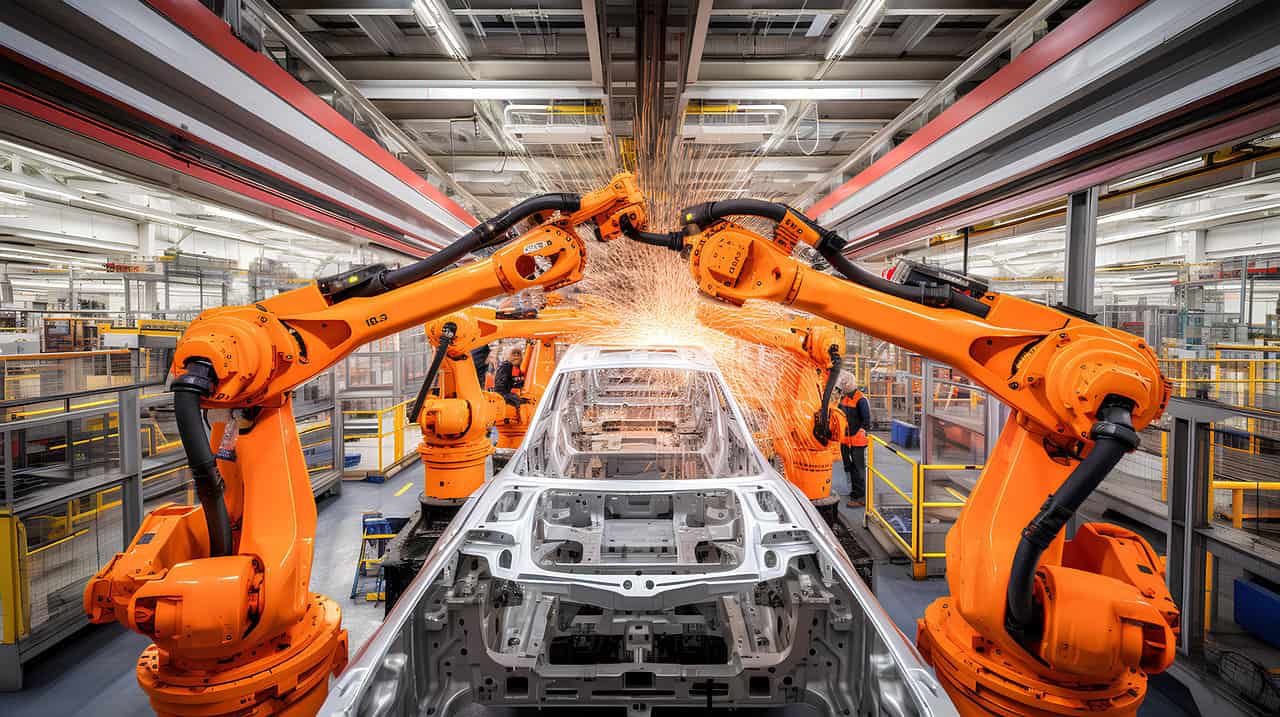
The job of a robotics engineer in industrial automation also involves staying updated with the latest technological advancements in robotics. This includes learning about new algorithms, sensors, and artificial intelligence techniques that can enhance the capabilities of robotic systems.
Moreover, robotics engineers in industrial automation collaborate closely with other professionals, such as mechanical and electrical engineers, to design and integrate robotic systems into existing manufacturing processes. They work together to optimize the efficiency of production lines and minimize downtime.
In addition to their technical expertise, robotics engineers also need strong problem-solving skills. They must be able to identify the root cause of any operational issues that arise and quickly find solutions to keep production running smoothly. This often involves troubleshooting complex software codes or analyzing sensor data for anomalies.
Robotics Career Opportunities: Healthcare and Medical Robotics Careers
Another exciting opportunity lies in the field of healthcare robotics. As the population ages and the demand for medical services increases, robots are being developed to assist in various aspects of healthcare, from surgical procedures to patient care. Robotic surgeons are becoming more common in operating rooms, enhancing precision and reducing human error during complex surgeries.
Additionally, robotic exoskeletons are being used to aid individuals with mobility impairments by providing additional support and assistance.
👉 Want to figure out if a career in robotics makes sense for you? Answer 20 questions and we’ll send you your Robotics Career Readiness Score. Get your score.
Robotics Career Opportunities: Agriculture and Farming Robotics Opportunities
Robots are also finding their place in the agriculture and farming industry, offering numerous opportunities for increased efficiency and productivity. With the growing demand for food worldwide, farmers are turning to robotics to streamline various tasks such as planting, harvesting, and crop monitoring.
Autonomous drones equipped with advanced imaging technology can scan vast fields and detect any signs of disease or nutrient deficiencies in crops. This allows farmers to take immediate action, preventing potential crop losses. Additionally, robots designed for precision planting can ensure accurate seed placement while minimizing seed waste. These robots are programmed to analyze soil conditions and adjust their planting patterns accordingly, resulting in optimal crop growth and yield.
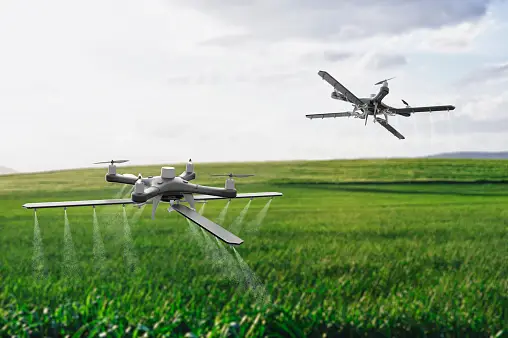
Moreover, robotic harvesters have revolutionized the farming industry by significantly reducing labor-intensive tasks. These machines can efficiently pick fruits and vegetables with precision and speed, ensuring minimal damage to the crops. This not only saves time but also allows farmers to harvest their produce at the peak of ripeness, enhancing its quality and taste.
In addition to planting and harvesting, robots are also being used for tasks such as weeding and pest control. Through advanced imaging and AI algorithms, these robots can identify weeds and apply targeted herbicides, reducing the need for widespread chemical use. This not only saves costs but also minimizes environmental impact.
Furthermore, drones equipped with high-resolution cameras and sensors are being employed to monitor crops from above. These aerial devices can detect early signs of plant diseases or nutrient deficiencies, allowing farmers to take prompt action before significant damage occurs.
Robotics Jobs: Autonomous Vehicles and Transportation Industry
Autonomous vehicles and transportation are revolutionizing the way goods and people are moved from one place to another. Self-driving cars, trucks, and even drones are becoming increasingly prevalent in our society. These vehicles use advanced technologies such as lidar sensors, radar systems, and artificial intelligence algorithms to navigate roads safely without human intervention.
In the logistics industry, autonomous delivery robots are being used to efficiently transport packages within warehouses or across short distances. These robots can navigate complex environments using mapping technology and avoid obstacles in realtime. They are equipped with sensors that allow them to detect objects and make decisions on the best path to take. This not only reduces the need for human labor but also increases efficiency and accuracy in package delivery.
Autonomous delivery robots are designed to handle a variety of packages, from small parcels to larger items. They can navigate through narrow aisles and tight spaces, ensuring quick and reliable deliveries within warehouses. With their ability to work 24/7 without fatigue or breaks, these robots significantly improve productivity and reduce delivery times. They can be programmed to follow specific routes or adapt to changes in realtime, ensuring optimal efficiency in package transportation.

One of the key advantages of autonomous delivery robots is their ability to operate in various weather conditions. Rain, snow, or extreme heat do not hinder their performance as they are designed with weather-resistant materials and advanced sensors. This allows them to continue delivering packages without any interruptions caused by adverse weather.
Moreover, these robots are equipped with advanced security features such as facial recognition technology and biometric authentication, ensuring that only authorized individuals can access sensitive information or restricted areas. In addition to their security capabilities, these robots are also designed with user-friendly interfaces and intuitive controls, making them easy for employees to operate and interact with.
One of the key advantages of using these advanced robots is their ability to automate repetitive tasks, freeing up human workers to focus on more complex and creative endeavors.
Robotics Jobs: Artificial Intelligence and Machine Learning Roles
In the rapidly evolving landscape of robotics careers, let’s focus on artificial intelligence (AI) and machine learning (ML) roles, which is perhaps the most exciting and forward-thinking sector. As technology continues to advance at an unprecedented pace, the need for individuals with expertise in AI and ML has become crucial across various industries. From healthcare to finance, manufacturing to transportation, companies are increasingly relying on these technologies to revolutionize their operations and stay ahead of the competition.
The demand for professionals specializing in AI and ML is projected to skyrocket in the coming years. In fact, according to recent studies by industry analysts, job postings in these fields have increased significantly over the past decade and show no signs of slowing down. This surge can be attributed to several factors including advancements in computing power that enable more sophisticated algorithms, a growing abundance of big data that feeds into AI systems, and an increasing recognition among businesses that leveraging AI is essential for survival in today’s digital age.
As AI and ML continue to reshape industries across the globe, it is clear that there will be no shortage of career opportunities in this field throughout the 2020s.
Whether you are a software engineer looking to specialize in machine learning algorithms or a data scientist interested in developing intelligent systems capable of making predictions based on vast amounts of data, now is undoubtedly an exciting time to embark on a career journey within robotics. The possibilities are truly endless as we witness how rapid developments in artificial
Embracing the Future of Robotics Career Opportunities
Within the realm of robotics, there are numerous job opportunities available for aspiring engineers in the 2020s. With advancements in technology, the field of robotics is expanding at an exponential rate, presenting an exciting future for those who choose to embrace it. From designing and building robots for various industries to developing algorithms and artificial intelligence systems, the possibilities are endless.
One particularly promising aspect of this field is the opportunity to work on cutting-edge projects that have a direct impact on society. For instance, robotics engineers have been instrumental in developing assistive robots that help individuals with disabilities lead more independent lives. Additionally, automation has revolutionized industries like manufacturing and logistics, optimizing efficiency and reducing human error.
Moreover, as robotics becomes increasingly integrated into our everyday lives – from self-driving cars to smart homes – there will be a growing demand for professionals who can navigate this ever-evolving landscape.
The skills required to excel in this field go beyond technical knowledge; problem-solving abilities and adaptability will also play crucial roles as new challenges arise. As such, embracing the future of robotics means not only staying abreast of technological advancements but also cultivating soft skills that set individuals apart in a competitive job market.
In conclusion, if you are considering entering the world of robotics engineering in the 2020s, rest assured that there are vast career opportunities waiting to be explored. This rapidly evolving industry presents countless avenues to make a significant difference through innovative projects while being at the forefront of groundbreaking technological developments.
👉 Want to figure out if a career in robotics makes sense for you? Answer 20 questions and we’ll send you your Robotics Career Readiness Score. Get your score.
How to Transition Your Engineering Career into Robotics with a Professional Specialty
One of the most exciting career opportunities in the realm of engineering is transitioning into robotics. As technology continues to advance at an incredible pace, the demand for professionals with expertise in robotics is skyrocketing.
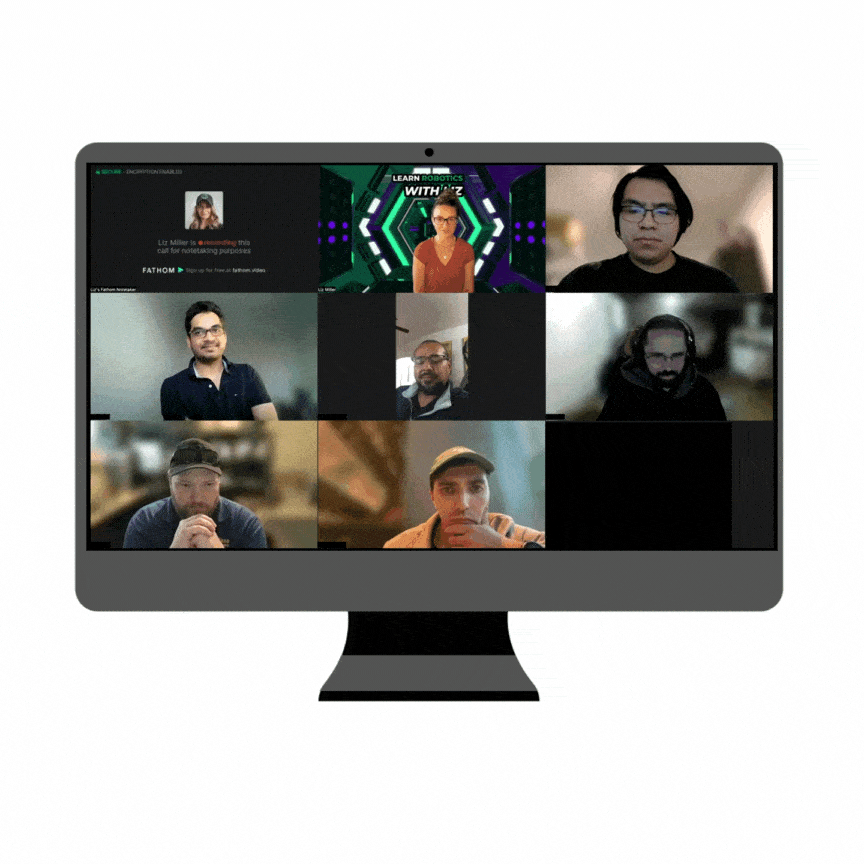
However, making a successful career transition into robotics requires more than just basic engineering knowledge. To truly excel in this field, it is essential to develop a professional specialty that sets you apart from other candidates.
That’s why we’ve created our Expert-Led Robotics Mentorship Program. This is career consulting specifically for engineers who want to transition their careers and be a specialist within the robotics industry.
One of our robotics career opportunities allows you to work alongside an Expert Robotics Mentor who has worked in the roles you want to pursue and advance your career quickly (within 90 days or less) by leveraging your engineering background.
Our clients have unlocked offers earning $80,000-$400,000 by specializing in robotics. You can read more about their stories here.
How do we do it? Let’s walk through our process.
Step 1: Build a Plan with Actionable Steps
To start your journey towards a career in robotics, it is crucial to identify and cultivate a specific area of expertise within the field. This could be anything from computer vision and perception systems to motion planning or sensor fusion. Developing proficiency in one or more of these areas will not only make you more desirable to potential employers but also give you an edge when working on complex robotic systems.
The very first thing you’ll do with your Expert Mentor is analyze your background and career goals. That way you can create a “custom blueprint” that is calibrated to you.
Once you have your Robotics Career Blueprint, you and your mentor will execute the action plan over 90 days. Because engineers like to “overcomplicate things” many times your mentor will be keeping you on target and preventing you from getting shiny-object-syndrome so that you can accomplish your goals.
Step 2: Implement a Networking Strategy to get in front of “Robotics” Leaders
The program is designed to run Career Strategy and Robotics Training in parallel so that you maximize your time. A big part of Career Strategy is networking.
How do you position or present yourself to future employers, hiring managers, and colleagues?
Engineers are notorious for being “introverted” so reaching out and doing the “networking” tends to be more challenging than the hardcore robotics training.
We’ve streamlined this process so that our clients can stay up-to-date with the latest advancements in the industry while building a professional network of connections who can open up doors.
Step 3: Gain Experience in the Robotics Industry First
Finally, our clients gain experience through an Internship with Learn Robotics. We curate a Capstone Project that serves as a research, engineering, and robotics training so that our clients can walk into interviews feeling confident and prepared.
This is probably the biggest thing that sets our clients apart in interviews. They’re seemingly coming in with the exact perfect experience for the company they want to work at. This positions them as an expert in the field, allowing them to unlock offers and beat out the competition.
Ready to Reinvent Yourself with a Robotics Career?
Click here to check out our Elite Mentorship Program where you can consult directly with an Expert Robotics Mentor to advance your engineering career in robotics, earn $100k-$200k+, all within the next 90 days or less.
When you transition your engineering career into robotics with a professional specialty opens up endless possibilities for growth and innovation. By identifying your area of expertise within the field, staying engaged with emerging technologies, and actively participating in relevant communities, you can position yourself as a highly sought-after candidate for exciting job opportunities in this booming sector.

